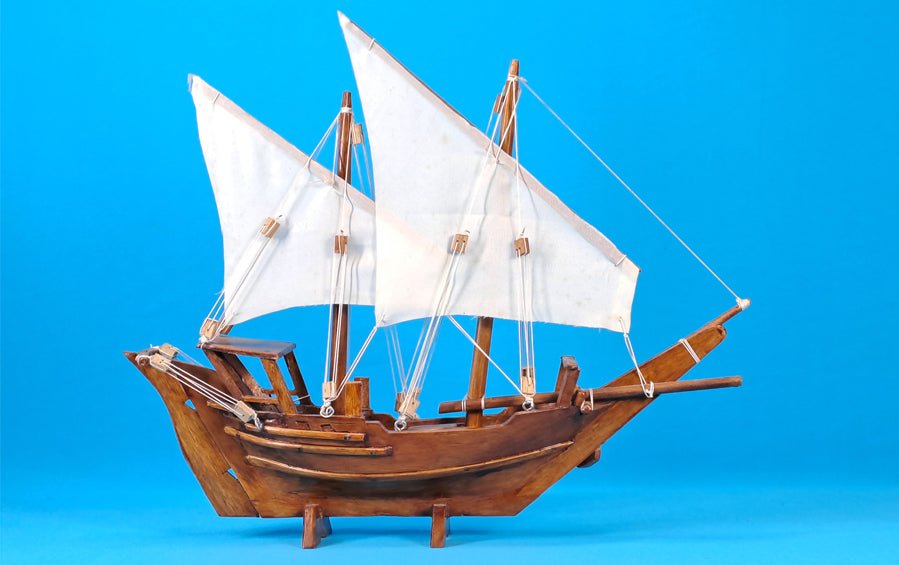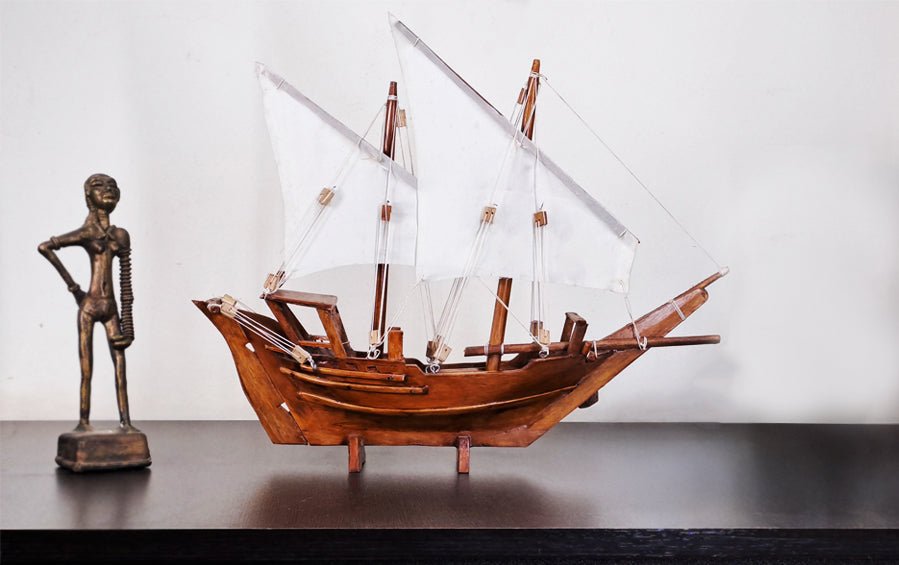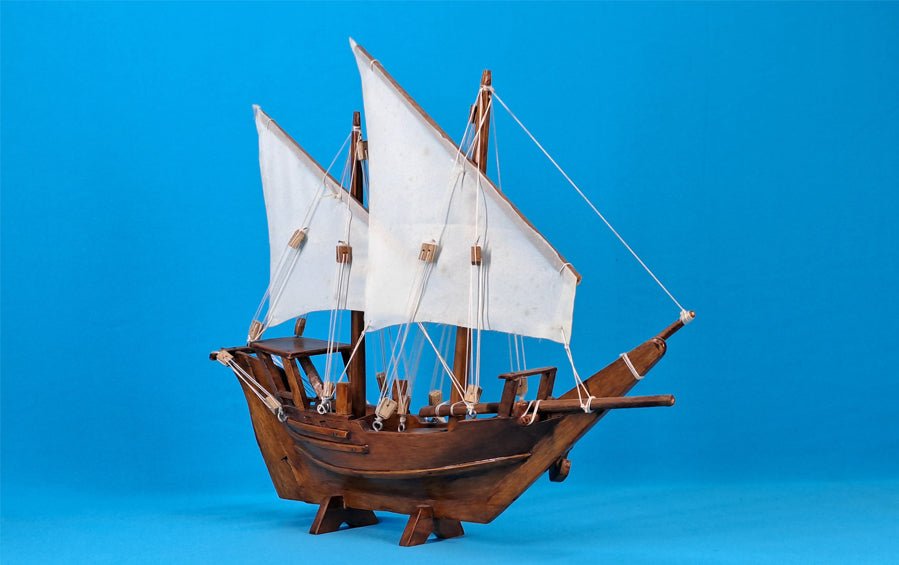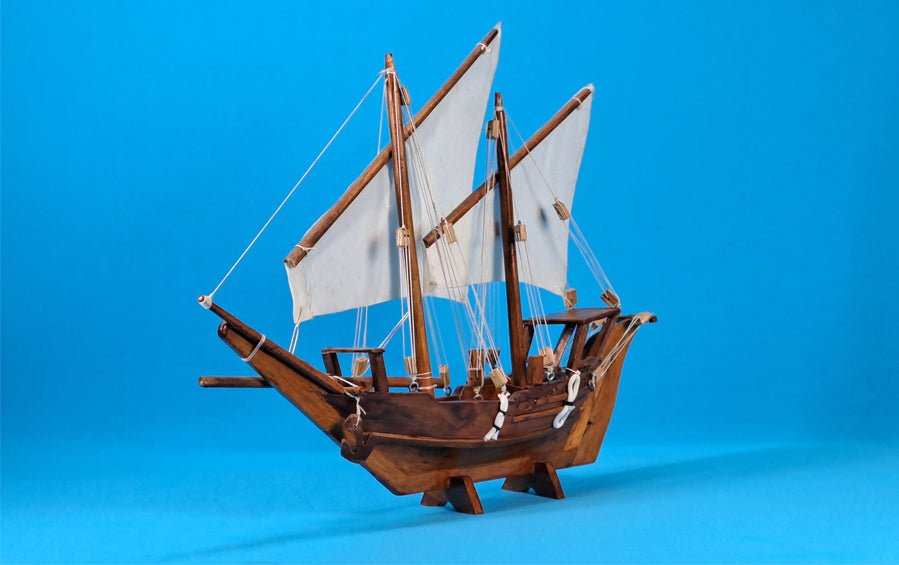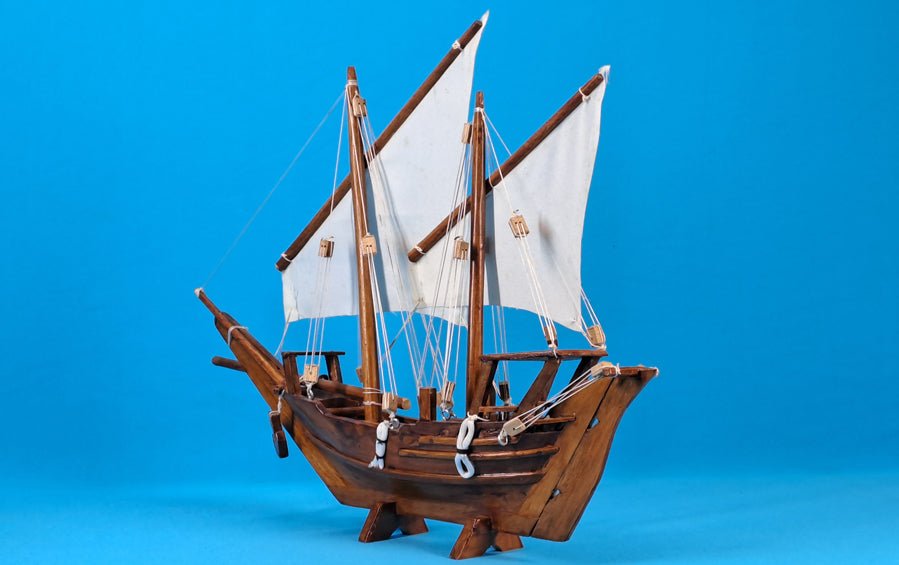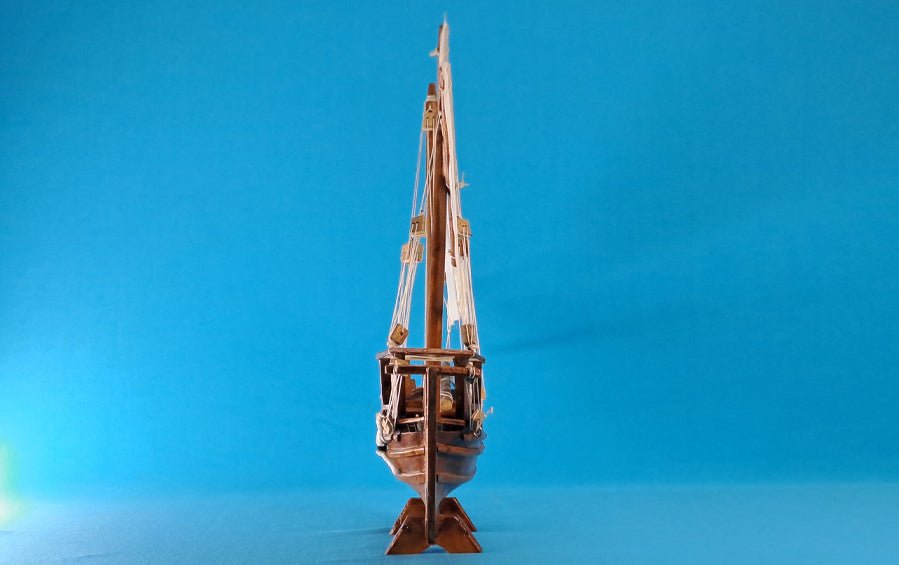Kerala Uru | Wooden Ship Model
Kerala Uru | Wooden Ship Model
A Great Nautical Decor Piece | A Tribute to India’s Maritime Legacy
Celebrate India’s historic ocean trade with this handcrafted Kerala Uru | Wooden Ship Model—a magnificent nautical décor item inspired by the legendary Fat Boat of Beypore. This model connects two great shipbuilding traditions—Beypore in Kerala and Mandvi in Gujarat—and honors the centuries-old maritime ties between India and the Arab world.
Each Uru model is meticulously handcrafted by skilled master artisans, with some models taking hundreds of hours to complete. Inspired by the traditional wooden dhows made in Beypore, Kerala, these ships—called Urus—were once vital cargo vessels used by Arab traders for centuries. The craftsmanship reflects India’s longstanding shipbuilding excellence and attention to detail.
Features
- Handmade in Mandvi, Gujarat – a traditional shipbuilding hub
- Crafted with Balsa Wood – lightweight and sturdy
- Fittings & Ornaments made of detailed cast metal
- Impressive Size: Approx. 20 x 3.5 x 18 inches (L x W x H)
- For indoor display only – non-floating decorative model
The Uru, also known as the Fat Boat, is a dhow-type wooden ship deeply rooted in India’s maritime history. The tradition of building these ships in Beypore dates back to ancient trade with Mesopotamia, and they remained a preferred vessel type for Arab traders well into the modern era. This wooden model, made in Mandvi, symbolizes that rich maritime exchange and craftsmanship legacy.
India and the Indian Ocean: A Maritime Legacy
For over 4,000 years, India has been at the heart of Indian Ocean trade—its seafarers, shipbuilders, and merchant guilds forging connections across continents and cultures. From the Harappan dock at Lothal to the cosmopolitan merchant guilds of Aihole, Indian seafarers navigated monsoon winds and ocean currents to trade goods, ideas, and traditions. They sailed from the Makran coast to Mesopotamia, and from West Africa and the East African coast to Bali, Singapore, and China—long before the rise of European naval empires. This enduring tradition of indigenous seafaring not only powered commerce but also carried Indian philosophies, religions, and innovations far beyond its shores, shaping the cultural contours of the Indian Ocean world.
